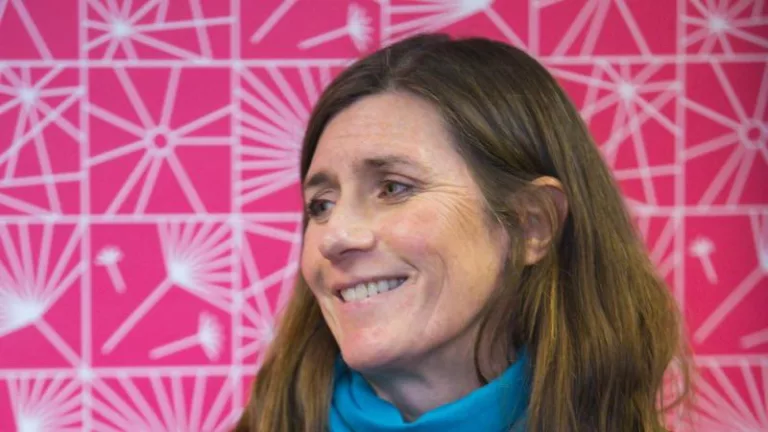We are Réka and Suzy, two law finalists on a mission to find the best pubs in Oxford. We will begin our journey by reviewing our clear favourite so far, our home away from home, the Lamb and Flag. It was the preferred pub of legends such as CS Lewis, JRR Tolkien and has been selling pints since the 16th century with its profits historically funding DPhil scholarships at St. John’s College. Ever the philanthropists eager to give to a good cause, we often come here to forget our latest medical negligence case by drinking our favourite pint, the Prospect. A delicious, sweet pint with a low ABV that only costs £4.50, it’s the perfect drink to relax and wash away your essays without acquiring a hangover. We would encourage everyone to try it, even those who have not acquired the taste for beer. Even if the Prospect isn’t your thing, the pints pulled at L&F are constantly changing, so you will never be stuck for something new to try – like the chai cider from last term. This pub isn’t the destination for a 4-course meal, but the bar snacks are perfectly satisfactory. Due to its fame and location the L&F fills up quickly after 8pm so best come early if you expect a large group! Overall, you can’t beat the lively atmosphere of the place, and there’s no better place to celebrate meeting a deadline or numb the pain of many more to come. Until next week!
Introducing 2023’s Standout Reads
In spite of many trials and tribulations, I have once again triumphed over my annual 100-book challenge, surpassing it in 2023 by reading a staggering 114 books spanning various genres and authors. Pinpointing favourites is challenging, so instead after some contemplation I have opted to curate a short list of some of the most popular books of the last year.
We kick off with the much-anticipated memoir Spare (January 2023) by Prince Harry, the first book I read last year. Marketed as a tell-all account of a real prince exploring the inner workings of the Royal Family, and his eventual estrangement from the institution, Spare promised a riveting journey. Prince Harry reflects on coping with the public loss of his mother, Princess Diana, his struggles as the ‘spare’ heir, his military service, and his battles with substance addiction.
While I commend Harry’s candour and sympathise with his struggles, I found the structural organisation of Spare somewhat overwhelming. There are definitely some endearing moments, such as his meeting Meghan, but at points, the memoir veers into oversharing. Some of his personal anecdotes, including the infamous ‘oscillating penis’ scene, felt uncomfortably detailed, while others were simply mundane, like how he hallucinated that a bin was talking to him while on psychedelics. I had hoped for more insights into his experiences as a royal figure, rather than the predominant focus on his military service, which personally didn’t captivate me as much. Despite these criticisms, it’s a unique glimpse into an extraordinary life, and I hope Prince Harry found solace in sharing his story in Spare.
Onto the realm of fiction, we have Yellowface (May 2023) by Oxford alumnus R.F Kuang. This literary gem unfolds after the untimely death of Athena Liu, a prominent Chinese-American author. June Hayward, former classmate of Athena’s, cleverly seizes the opportunity presented by her frenemy’s demise, appropriating Liu’s original manuscript that delved into the lives of Chi
nese labourers during World War I. In a bold move, June resorts to the controversial use of ‘yellowface’ to pass the book off as her own, and her overnight stardom is coupled with an escalating sense of paranoia. As an Asian woman, I was eager to delve into the buzz surrounding Yellowface, a satirical take on racial diversity in the publishing industry.
Yellowface lived up to my expectations of a riveting literary thriller. The novel boasts great pacing, immersing readers in June’s gradual descent into madness. Beyond being a critique of the publishing industry, Kuang skillfully weaves her personal experiences into the narrative. The novel serves as a platform for discourse on societal attitudes, particularly on Twitter, towards successful women of colour. The incorporation of ‘yellowface’ as a narrative device certainly adds depth to the exploration of cultural appropriation, making it a thought-provoking read. While I found the Twitter discourse a tad repetitive and distractive, Kuang’s storytelling prowess shines through, blending elements of satire, suspense, and social commentary. As a formidable contender in 2023’s fiction releases, Yellowface is a must-read for those seeking both entertainment and introspection.
Last, but certainly not least, is the 2023 Booker Prize Winner: Prophet Song (August 2023) by Paul Lynch. The Booker Prize last year had some incredibly strong contenders, with three out of the six shortlisted being written by people named Paul, but this dystopian novel from Lynch is certainly deserving of its top spot. As a dystopian Ireland slides into totalitarian rule, scientist and mother-of-four Eilish Stack is shocked to hear her trade unionist husband is being interrogated by the police. When her husband vanishes, Eilish is left having to hold up the fort on her own while caught within this treacherous, unpredictable nightmare. Lynch’s descriptions are reminiscent of totalitarian governments all around the world, exposing the lived reality of many.
Although this is an unconventional read for me – I don’t tend to read much political fiction – I was swept into the harrowing psyche of Eilish and her utter desperation to save her family, no matter what. It took some getting used to Lynch’s writing style, which at times felt a little too intellectual for me, but overall I am glad to have read a book that platforms such an important narrative, making Prophet Song one of 2023’s best reads.
2023 was truly a year of amazing writing, and I am so grateful to have explored such a wide variety of literature and non-fiction. It only makes me more thrilled to discover what 2024 has to offer!
The Queer Pop Perfection of Chappell Roan
Chappell Roan is the newest pop star who is quickly rising through the ranks, and charts. I’ve had her debut album: “The Rise and Fall of a Midwest Princess” on repeat for months now. I simply cannot get enough. She is confident, queer, and bold: her voice has the power and range of Renneé Rapp, Alicia Keys, while her lyrics are sexually charged and intensely catchy, reminiscent of Charli XCX and Kim Petras. Her pop songs make you feel like you’ve just seen off a bottle of wine and you’re about to go and see a drag show. Her ballads, however, make you want to curl up and reminisce on your string of failed situationships (this is an entirely objective characterisation of course).
But to what can this emotional intelligence, lyrical playfulness, and distinct identity as an artist be attributed to? Chappell Roan is the over-the-top alter-ego of Kayleigh Rose Amstutz. She is hyper-confident, hyper-sexual, and hyper-active. Kayleigh Rose Amstutz was born and raised in the immensely conservative Willard, Missouri. At 17, she was signed to Atlantic Records. She began her music career writing and producing in Los Angeles with Dan Nigro, most well-known for producing Olivia Rodrigo’s chart-topping, debut album ‘Guts’. Chappell Roan felt on top of the world, signed before even finishing high school. Her single, ‘Pink Pony Club’, is a show-tune-inspired pop ballad, written after Roan visited a gay club in West Hollywood for the first time. The song brilliantly encapsulates the feeling of a small-town girl in the big city: “And mama, every Saturday/I can hear your southern drawl a/thousand miles away…saying/God, what have you done”. After its release in April 2020, Chappell was dropped by Atlantic after it underperformed. She felt her dream had been killed moving back to Willard, working to save up and move back out west. She gave herself a year to try and make it. Once back in LA, she continued to work with Dan Nigro, and was signed to Amusement, his imprint at Island Records.
Her debut album is both a romanticisation and lamentation of a young person’s discovery of sex, queer culture, freedom, and love. In an interview with Vulture, Roan described her music as being born out of a commitment to “stop trying to impress the music industry and start trying to impress gay people.” She is unapologetically queer, and being dropped has not deterred her from solidifying this as integral to her brand. The album feels like a reclamation of her teenage years: she is now able to celebrate herself and also be celebrated by others.
Her album cover pulls inspiration from the world of burlesque and drag, but also reminds us of homecoming, of high school. It is reminiscent of the days of VEVO, and when the VMAs were iconic. The tracks do the same thing: “Red Wine Supernova” explores the thrilling novelty of a queer hookup from a drunken, carefree perspective. She takes us through a land of make-believe: ‘Well, back at my house/I got a California king/okay, maybe it’s a twin bed/And some roommates, don’t/worry we’re cool”. In the “supernova” of this song nothing matters, and she allows her audience to imagine, or reminisce, the best parts of falling in love for the first time. That is certainly impressive. Yet, on Causal, she laments over the modern nature of relationships: “Knee deep in the passenger seat/and you’re eating me out/Is it casual now?” The song entirely reverses what Roan achieves in “Red Wine Supernova”: despite both songs being overtly sexual, “Casual” makes it jarringly unromantic and visceral. In “Casual” she is begging for the strings to be attached, while in “Red Wine Supernova”, the fun is in the fact that they are not.
“Red Wine Supernova” has all the shiny pop allure of Katy Perry’s “I kissed a girl” but from a genuine queer perspective, not one of fetishization. She told Vulture, “The only Grammy I want to win is album packaging.” Perhaps in wanting to win this Grammy, she wants recognition for her tenacity as an artist. She knows who she is, and “The Rise and Fall of a Midwest Princess” is testament to this. She is creating near-perfect pop music, with herself at the centre: the rejection made her stronger, and this album is one major comeback.
Oxford launches new Vice-Chancellor’s Colloquium programme
Oxford’s Department for Continuing Education launched a new interdisciplinary extra-curricular programme, “The Vice-Chancellor’s Colloquium,” this term. The programme was first announced at Vice-Chancellor Irene Tracey’s 2023 Oration speech last October, and aims to bridge the gaps between humanities and STEM subjects through “an experiment in helping students learn from each other across the divide.”
The Vice-Chancellor’s Colloquium is offered to all undergraduates currently studying at the University and comprises keynote lectures and talks, interdisciplinary projects, and a panel which comes at the end of the term. The programme’s primary focus is to promote critical approaches to complex global issues, with climate change taking centre stage as its inaugural theme.
Participants will work on group projects guided by DPhil students in teams that are representative across the broad scope of humanities and mathematical, physical, life, social, and medical sciences. The programme also offers summer internship opportunities to support “the University’s goals for local and global engagement.”
The Vice-Chancellor’s oration centred on progress, and her introduction of the program notes the changing world the University is working to keep up with. Interdisciplinarity has been emerging across other universities across the UK: Oxford follows in the footsteps of other Russell Group institutions such as University College London (UCL) and the recently formed London Interdisciplinary School (LIS), which provides undergraduates with the opportunity to study a Bachelors of Art and Science (BASc).
“Don’t be in such a hurry. Enjoy the world.”
Kate Ewart-Biggs’ mission with the British Council is to build lasting connections between the UK and other countries through arts and language. Coming from a diplomatic family that represented Britain abroad, from a young age Kate recognised the influence an individual has on building positive relationships between places and peoples.
Kate’s father, Christopher Ewart-Biggs, was UK ambassador to Ireland before being assassinated by an IRA landmine. After his death, her mother, Baroness Ewart-Biggs continued to advocate for peace in Ireland, ultimately gaining a place in the House of Lords. “Though our diplomatic life came to an end very suddenly, my mother continued to use her global public platform to advocate strongly for better connections between people.” As Kate tells me, mutual respect is crucial to form these connections.
Having spent her childhood in France, this early international experience, as Kate says, “shaped my view that the world is a wide place.” Having learned to read and write in French before English, Kate considers herself a ‘global citizen’, someone whose identity transcends geographical borders. Her work with the British Council has taken her all over the world, including Indonesia, Uganda, Tanzania. I ask how she adapts to the cultural landscapes of each country to carry out her work. She stresses the importance of language: “even if you don’t speak the language very well, trying and making the effort is a really important aspect of integrating yourself into the community.” Before working with the British Council, Kate worked for a feminist organisation helping street girls in the North of Brazil. She describes the exhilarating challenge of hearing new words and looking them up in a dictionary – “the days before google translate” – discovering how words shed light on cultural values. The word which kept cropping up was the Portuguese ‘gente’, meaning the collective ‘us’ as opposed to referring to people in general. Kate tells me how the collective community atmosphere is far stronger abroad than in the UK. “I have always been fascinated by what makes different cultures operate, the norms and things which glue communities together and the customs which really matter.” In Tanzania, Kate tells me, there is “the whole greeting process of how are you, how is your family, etc. Though this seems slightly protracted to reserved Brits, without it people won’t want to engage with you because they think you are being really rude.” These small cultural factors can make or break the positive relationships you attempt to form with other countries.
Some contributions from the British Council that Kate has overseen include the fantastic work done for women and girls in areas where their educational opportunities have been cut off. Kate tells me about an education programme in Pakistan called EDGE (English and Digital for Girls’ Education) which gives digital and English skills to thousands of girls inside and outside of the education system. The programme has been extended to Afghan refugees who have been cut off from education as well as women and girls facing educational barriers in Bangladesh and Nepal. EDGE ensures that girls from marginalised communities can make educated decisions in order to better contribute to the betterment of their society. Kate enthusiastically tells me that as a woman and the mother of a daughter, these opportunities for women and girls is one of the most important contributions the British Council can make to developing countries.
Yet challenges facing the British Council’s work are paramount in today’s turbulent climate of war and prejudice. The safety and security of staff in warzones, Kate tells me, is the British Council’s primary concern. Once people are protected, culture must be preserved as well. ‘When a country’s people are being destroyed, their culture is being destroyed too.’ Kate is proud to have overseen the profiling of Ukrainian arts and culture in the UK, and tells me that through the British Council’s management of the UK’s Cultural Protection Fund, a similar agenda is underway to protect Palestinian cultural assets once the brunt of conflict is over. “People want a sense of optimism and opportunity. We have to think of ways in which the British Council can support the rebuilding of countries and enable staff to continue working so they can feel that they are making a contribution to what is happening around them.”
I was curious how the expansive communities created by the British Council counter the racial prejudice that still exists in our societies. Kate is adamant that liberal middle-class bubbles often don’t want to acknowledge that racial prejudice still exists. Her solution is to ask questions. Learning to listen and acknowledge instead of placing people in judgemental binaries helps spread progressive ideas. She says this becomes more difficult as now “there’s nothing in the middle. There’s no nuance, only binary choices. My experience is that you have to ask questions.” Simple questions such as “what do you mean by that?” Or “what’s underneath that statement you’ve just made” allow people to challenge assumptions without creating hostile binaries. Simple acknowledgements make a world of difference.
My final question to Kate is what advice she has for students who seek to expand their communities within the constraints of a ‘conventional’ working life. She says to seize any opportunities you have to learn a language. “Having a language under your belt makes you stand out from other people. I’m also a great advocate for travel, earning money wherever you can and exploring the world.” Even though the divide between those with and without parental resources is increasingly larger, find ways to travel cheaply. “Don’t be in such a hurry. Explore before settling down. Enjoy the world.”
Oxford releases new guidance on AI use for students
The University of Oxford has released new guidance on the use of artificial intelligence (AI) tools for students. The guidance, published 8 January 2024, comes following significant interest in the promises and dangers of AI, including the 2021 launch of the Oxford Institute for Ethics in AI and the continued advertisement of the Saïd Business School’s Oxford Artificial Intelligence Programme.
The guidance permits students to “make use of generative AI tools […] in developing [their] academic skills and to support [their] studies.” They are warned, however, that “AI tools cannot replace human critical thinking or the development of scholarly evidence-based arguments and subject knowledge that forms the basis of [their] university education.” This advice is particularly stern toward students who might pass off AI-generated text as their own: “Unauthorised use of AI falls under the plagiarism regulations and would be subject to academic penalties in summative assessments.”
The guidance does provide examples of where use of AI is both helpful and permissible, such as in producing a summary of an academic paper, providing feedback on writing style, or listing key concepts likely to appear in a forthcoming lecture.
In all cases, however, it is stressed that use of AI should not be seen as a substitute for developing an individual’s capacity to learn and that any facts given by AI should be cross-referenced with traditional scholarly sources. Even if students follow these guidelines, the policy maintains that students “should give clear acknowledgements of how [AI] has been used when preparing work for examination.”
This is consistent with the University’s guidance on plagiarism, which states that students “must clearly acknowledge all assistance which has contributed to the production of [their] work.” This same guidance states that “AI can only be used within assessments where specific authorisation has been given, or when technology that uses AI has been agreed as reasonable adjustment for a student’s disability.”
It is not clear in which cases such specific authorisation has been given; of the five most studied undergraduate courses (Medicine, Law, History, PPE and Chemistry), only the Faculty of History includes reference to specific authorisation of AI use in its Undergraduate Handbooks, and this is simply to restate the same conditions from the University’s overall guidance on plagiarism.
The use of AI in education is sure to be an ongoing point of discussion among all universities as the technology develops, and there are clearly points of controversy among Oxford faculty which the guidance seems to obscure. While some faculty members signed an open letter calling for a six month pause in AI development (as reported by Cherwell), the Department of Computer Science understandably has “Artificial Intelligence and Machine Learning” as a key research focus.
In response to these disputes over the role of AI, the Russell Group published a joint statement on 4 July 2023, stating five principles for the use of AI in Education:
- Universities will support students and staff to become AI-literate.
- Staff should be equipped to support students to use generative AI tools effectively and appropriately in their learning experience.
- Universities will adapt teaching and assessment to incorporate the ethical use of generative AI and support equal access.
- Universities will ensure academic rigour and integrity is upheld.
- Universities will work collaboratively to share best practice as the technology and its application in education evolves.
These principles are very clearly mirrored in Oxford’s advice. They are reworked into the newly published guidance as questions for students under the heading “Five things to think about when using generative AI tools,” although the guidance does not include any acknowledgement of the joint statement or its five principles.
Review: William Lowry’s ‘Zeitgeist’ at Trinity College
Zeitgeist
The general intellectual, moral, and cultural climate of an era
One Sunday afternoon last term, myself and two friends went along to an art exhibition at Trinity College. Upon entering a darkened room, we were immediately struck by an intense, almost bewildering soundscape, and before us were strange, industrial sculptures. This, as it turned out, was merely a first impression.
William Lowry is a recent graduate of The Ruskin School of Art, having also received the Ashmolean Museum’s Vivien Leigh Prize and the Emery Prize from Pembroke College. Lowry is a multidisciplinary artist, and his work “combines drawing, printmaking, sculpture and sound to probe themes of personal and collective memory, masculinity and queer desire, myth and modernity”. In this sense, Zeitgeist was no different.
‘Structure I’, located in the centre of the installation was a Berghain-esque model of a building atop a metal stand which sat in something of a reflecting pool. Within the ‘windows’ of the building were detailed biro sketches of athletic men, with strange faces reminiscent of Goya’s Black paintings. ‘Structure II’, to the left, was the largest. A tall church-style window framed another biro sketch of athletic male physique, a man tumbling upside-down. The athleticism was further suggested by the artist’s use of a weights rack, such as one would find in a gym. On the floor, mirroring the frame, was a gravel track, flanked by chains and topped by miniature propaganda-style pennant flags, again displaying the male physique.
‘Structure III’ occupied the right-hand side of the room, a circular layered piece again surrounded by miniature pennant flags and a picket fence. What intrigued me most, however, were the waves of red light, which isolated the piece in an ominous glow. Behind this was ‘Structure IV’, a crooked church tower atop a stand which itself stood in an oil spill. Here, again, the windows revealed muscles and contorted faces. A lone searchlight, positioned behind the viewer, periodically brought one’s own silhouette into focus on the far wall.
But perhaps the most striking aspect of this installation was the series of images projected onto the back wall, accompanied by a dynamic original soundtrack. Clips of industry, metal fences and light shows were followed by ‘Zeitgeist’ or ‘Jetzt’ (now/nowadays) which were projected in huge letters, but only for a moment. Further images included strips of light, which flashed all manner of colours, and strange, undefinable shapes which were merely tangles of lines. The music was synchronised cleverly with the images, and ranged from calming ambient textures, to industrial techno and dark synthesisers. My friends and I stood watching this succession of images for ages. The audio-visual experience produced a trance-like effect, which was fascinating in its darkness, but also unnerving in its unpredictability. It was genuinely difficult to look away, there was something of an alternate reality about it.
However you may define art (be it through purely aesthetic qualities, the artist’s intention, its purpose etc.) this was an installation that held our attention for far longer than a moment. But in many ways, that was the genius of Lowry’s work. Once in that room, the depth of material and media made it impossible to soon leave.
Alien structures and shapes combined with familiar human musculature to give a strange effect, as did the imagery and intense soundtrack. Whilst each piece could be appreciated as an artistic feat in itself, the strength of this installation lay in their coming together. Only by immersing oneself in the room for an extended period did one truly appreciate this as a consummate multimedia experience. It was intriguing and unsettling in equal measure, and it stayed with us long after we’d left Trinity.
William Lowry has an upcoming solo exhibition at Pembroke College Gallery from 2nd–6th March. See more of his work on Instagram: @williamlowry.art
The winter of of our discontent: Heating in Oxford’s student accommodation
Winter in Oxford is decidedly cold. Starting in October, temperatures drop from over 20 degrees Celsius to freezing, sometimes overnight. While many student rooms at Oxford’s colleges still have vestigial fireplaces, the heating today runs almost entirely on gas and electricity. This system is certainly efficient, but it does give colleges the ability to control the heating that students receive in their accommodation. And what happens when colleges turn the heating off?
Heating and health
All student accommodation is required to be kept at a safe and healthy temperature, defined by the NHS as above 18 degrees Celsius for bedrooms and above 21 degrees Celsius for living rooms and other communal spaces. Below these temperatures, the NHS warns, people are more likely to suffer from weakened immune systems and fall ill. And the illnesses can be serious. According to the NHS, lower room temperatures make occupants more susceptible to increased blood pressure and can increase risk of heart attacks, strokes, and chest infections.
The policy that colleges should adopt seems fairly straightforward in theory – keep the student accommodation at a safe and healthy temperature. But in practice, there are many questions that arise with no clear answer. Must colleges turn the heating on at night? Should students have control of the thermostat in their room? When in autumn should colleges turn on the heating? The policies that colleges adopt in light of these complications are crucial and influence how frequently students get ill during Oxford’s short terms, where missing even a few days due to illness can be an enormous setback.
On or off at night
Many colleges have policies of keeping the heating on during the night, albeit often at lower temperatures than during the day. At Corpus Christi College, for instance, the default temperature for student rooms is 20 degrees Celsius during the day and 17 degrees Celsius at night (10 pm to 6:30 am) and “non-peak hours” (10:30 am to 4:30 pm). For students who desire warmer temperatures, there is also a “comfort mode” that boosts the daytime temperature to 23 degrees Celsius and the nighttime/non-peak temperatures to 20 degrees Celsius.
Other colleges have more controversially experimented with turning the heating off completely at night. At the beginning of Michaelmas 2023, Cherwell investigated Keble College’s new policy of cutting nighttime heating and the opposing student petition that resulted from the policy. One Keble student recently told Cherwell that despite the student petition and increased pressure on the college to keep the heating turned on at night, Keble refused to go back to its old policy. Instead, it set up a complaints form for students adversely affected by the lack of nighttime heat.
One of Keble’s stated reasons for limiting the amount of heat consumption was the college’s determination “to take action to address the climate crisis and become more sustainable.” However, some students have expressed scepticism that these environmental reasons, and not penny-pinching, are the true motivations behind the college policy. “They turn it [the heating] off … at night under the guise of sustainability” one student told Cherwell on social media.
Another student at St. Catherine’s College told Cherwell that she faced similar problems with insufficient heating in student accommodation: “Catz never has the heating on. They’ll tell you to fill in the maintenance request form, they come and ‘fix’ it and it still doesn’t work so I’ve had to borrow a portable heater from the porter’s lodge in winter. They told us the heating is off from 11 pm – 6 am officially.”
A second-year Lincoln College student complained about a lack of transparency on the issue of nighttime heating. She told Cherwell that, as a night owl, she preferred to do her work later in the evening but that it was “difficult to do work in [her] room when it’s freezing.” She further claimed that she did not remember receiving any advance communication from Lincoln stating it would be turning her heating off at night.
The hunt for warm October
The task of deciding when in autumn to turn on heating in student accommodation proves contentious each year. Colleges generally turn heating on sometime in October, but many have historically delayed the introduction of heating to the last possible moment and only reneged after significant student pressure.
During Michaelmas 2023, with temperatures regularly dropping below 10 degrees Celsius, St. Hugh’s College elected to turn on the heating on 13 October ahead of the scheduled 31 October. A facebook post from the St. Hugh’s JCR President at the time read: “Complaints have worked and college will be turning on the heating early (today) instead of the 31st.”
Even after this announcement, however, students reportedly faced issues getting heating in their rooms. The college sent another email on 17 October that read: “As the system has been switched off for months over the summer and has had to be turned on in a hurry without the usual pre-checks, we experienced some start-up issues in a few isolated parts of the site earlier this week.”
A first-year St. Hugh’s student told Cherwell that she did not accept the claim about “a few isolated sites” since the problem “was happening a lot in the main building.” Another St. Hugh’s student informed Cherwell on social media that in order to get the heating turned on students “were literally buying thermometers to show the college it was colder than 16 degrees in rooms.”
In response, St. Hugh’s told Cherwell: “It is our policy to turn the heating on early in the event of a cold weather snap such as the one forecast on 16 October 2023. The decision to turn on the heating was routine and not in response to any student complaints. The College did receive reports of problems with the heating in some buildings on 16 October, but these were all resolved either later that day or the following morning.”
St. Hugh’s was not the only college accused of employing this tactic. A Pembroke College student told Cherwell that his college did not turn on the heating in his room until three weeks into term (mid-to-late October). By this point, temperatures were already regularly falling below 5 degrees Celsius.
Pay as you go
Another issue colleges must contend with is how much to charge students for heating. Most colleges solve this problem by adjusting the fixed total accommodation fees to reflect the cost of electricity and gas.
According to one second-year student at Jesus College, however, the cost of heating at Jesus’ off-site accommodation is not factored into the fixed accommodation costs. Instead, students pay for the heating that they use during term. While this might seem like an efficient way to ensure that students use what they pay for and pay for what they use, in practice, it has the effect of incentivising less affluent students – who are looking to save money wherever possible – to freeze. One Jesus student affected by this policy told Cherwell: “My flatmates and I all winter have avoided turning the heating on because we know the energy prices are both expensive and opaque.”
He continued ironically: “Sometimes it is funny to wake up and see your breath condensing in a cloud of fog but I believe the experience overall has brought us together as friends and certainly saved us a few pound sterling.”
This policy of “pay-as-you-go” has attracted criticism similar to the criticism levelled against the policy of providing financial scholarships for high preliminary exam results. In both cases, detractors allege that the students who are the most well off and who thus require the least help are the ones who receive assistance, while the low-income students who are already at a disadvantage only fall further behind.
In response, some say that in the real world, people pay for heating on this basis. But others argue that at university, accommodation should be egalitarian, not differentiated based on ability or willingness to pay extra for utilities as essential as heating.
This list of issues related to heating in student accommodation is by no means exhaustive. There were dozens of student complaints submitted to Cherwell, and they all deserve attention for which there is not sufficient space in this investigation. What should be clear is that with so many students suffering from lack of heating in their accommodation, we are in the winter of our discontent. And glorious summer won’t be here for a while.
A fresh(er’s) perspective on Michaelmas term
When I transitioned from GCSEs to A Levels, my mum and I created a mantra: “you have to float before you swim, otherwise you’ll sink”. It was a way for me to remember that I was learning, not just academically – but also personally. Sometimes, you have to let a new experience come at you like a tidal wave before you can try to interact with it, control it, and make the most of it. One of the first things I did after moving into my accommodation in Freshers’ Week was to write this little mantra on a post-it note and Sellotape it to the wall next to my bed.
University life is completely alien to anything I have experienced before. You would expect the excitement of being an ‘Oxford Student’ to disappear – after all, everyone here got into Oxford. For me, it did not disappear exactly; it was buried. Everyone has their moments of being excited about being here, whether it is their first walk past the Rad Cam on the way to a lecture, or simply Matriculation, but no one says it aloud. The reality that I was attending Oxford University didn’t hit me until I was taking down my room decorations at the end of term; I was imagining what I would say to my friends from home about my first term, comparing it to their university experience.
I visited a friend at Nottingham University – my second week, her third – and I was outraged. She had not written a single essay while I had already written three, and we were both studying English. But still I felt like she had done so much more than me: her flat-mates made her social life look just as exciting as the one she had at home, while I hadn’t formed a close circle of friends yet. It wasn’t until that visit that I realised how completely different Oxford is as a university experience, defined by its short terms, heavy workloads, and small class sizes.
My social life was strange to begin with. Looking back at photos of Freshers’ Week and seeing the crowd of people I befriended on day one, whom I have not since spoken to, is hilarious. Leaving Atik early on a Wednesday night because “I’ve got to translate some riddles tomorrow!” is never something that I imagined people to accept without mockery, but being surrounded by like-minded people is not just a cliché from a personal statement: it’s something that has made university life feel like everything I wanted it to be.
My approach to Michaelmas term was that it was a trial run for the rest of my university experience. I signed up to many societies at Freshers Fair so that I was on the mailing list but did not have any time to attend any meetings. I don’t regret that. Now, I’m walking into Hilary feeling like I know how to live independently and how to do my degree (more than I knew in October, at least). With Michaelmas completed, I know how much time my degree takes, and therefore how much time I have left to dedicate to societies and sports.
Stage one of my mantra has been completed: I have learned how to ‘float’ and how to get by at university. As I am packing my suitcase for Hilary term, I am preparing to start stage two – ‘swimming’, and thriving. The new term coinciding with the new year works perfectly – after a break for reflection, I get to give it another shot.











